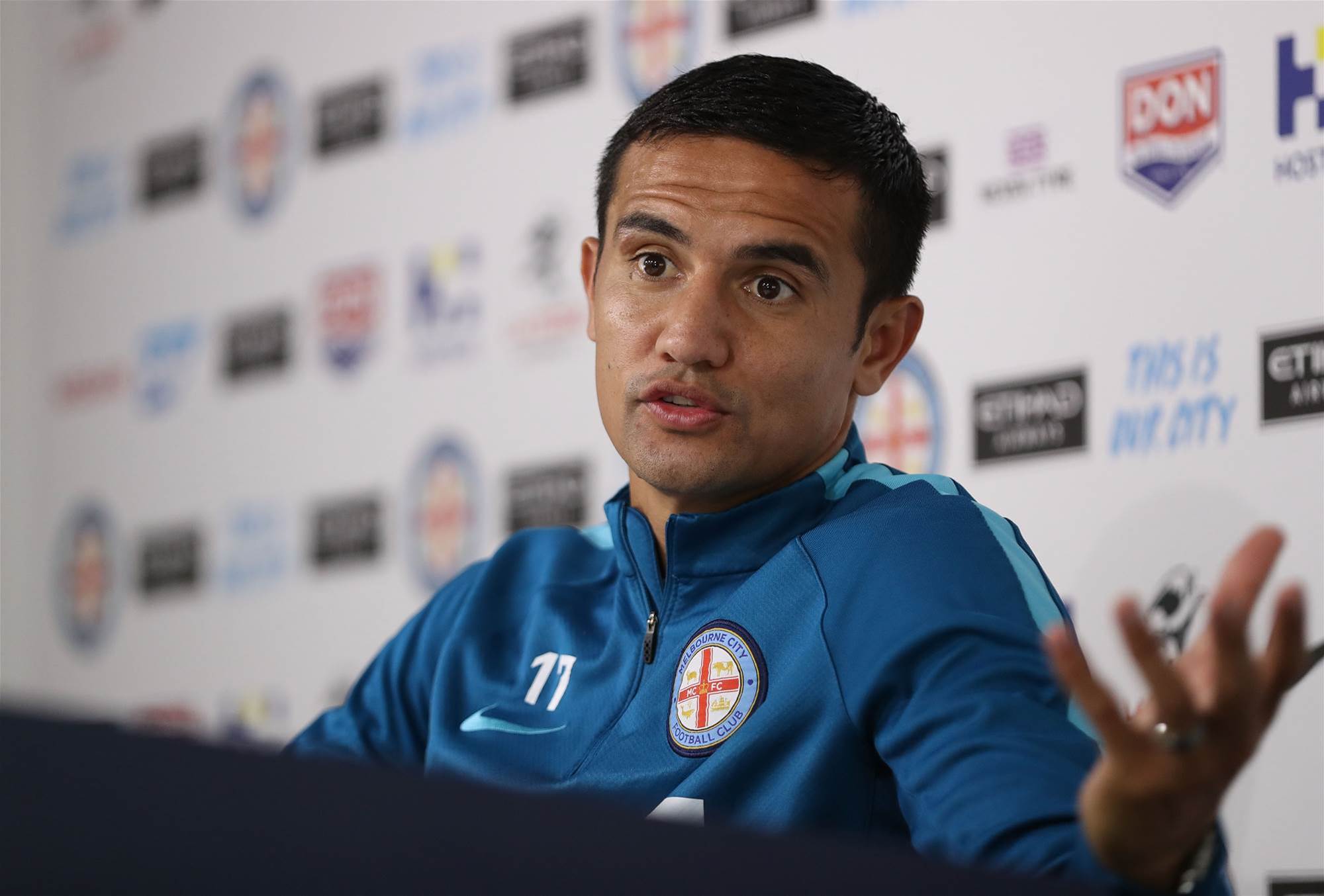Former A-League goalkeeper Clint Bolton has blamed a lack of leadership for Melbourne City’s history of underachieving in the A-League.
City finished fourth on the A-League ladder but slipped a whopping 27 points behind Premiers Sydney FC in the final standings.
And Bolton, who spent the final three years of his decorated career at the club when they were called Melbourne Heart, thinks the team should be doing much better.
“They’ve underachieved not just this season but pretty much every season they’ve been in the league in my eyes,” Bolton said.
“The three years I was there, I thought we had squads that should have done a lot better and I’ve only seen the same since I’ve stopped playing.”
Even so, Bolton, who made 70 league appearances for Melbourne Heart between 2010 and 2013, still believes Michael Valkanis’s side can be a threat in the finals after performing in one-off games like the FFA Cup Final.
“This season they started like a house on fire and looked like they’d recruited well - not only in quality but also in leadership,” the former shot stopper said.
“The big moments, like the FFA Cup Final, show what the team is capable of and that they have the ability to win big games on any given day. I still think that they’re a real threat in the finals.”
That still doesn’t gloss over the huge gap between City and Bolton’s other former employers, Sydney FC, where the goalkeeper won two A-League Championships in 2006 and 2010.

In Bolton’s eyes, City’s inconsistency since the formation of the club seven years ago has been down to a lack of leadership - something which hasn’t been an issue at Sydney this season.
“The big question is why have Melbourne Heart/ Melbourne City always been so inconsistent? I believe it’s down to leadership,” Bolton said.
“I look at this season and I look at Sydney FC and Graham Arnold, they’ve been able to keep that group playing at a high level consistently and that’s what good managers do.”
For that reason, Bolton finds it hard to see anyone stopping the Sky Blues in the upcoming Finals Series, though he does think that Melbourne Victory and rivals Western Sydney Wanderers could also be a threat.
As for City, it’s been over three years since they were taken over by the City Football Group and Bolton, who worked in a development role at the club following his retirement, admits that he was simply blown away when he first heard the news in 2014.
“I remember the day when we were just in the office and there was a meeting thrown by the CEO,” he said. “We just weren’t prepared for it.
“We had an idea that the ownership was talking to possible new investors, so we knew there was something going on behind the scenes but we didn’t realise that they were talking to Manchester City - it just didn’t seem possible.”
Despite the takeover, Bolton still feels that City, as a club, have one of the toughest jobs possible to compete with local rivals Melbourne Victory.
“They (Melbourne Heart/City) have had the toughest job of all the A-League clubs and I compare it to Western Sydney Wanderers. The big difference between us and Western Sydney is that they had a geographical divide and we didn’t.
“We were competing directly head-to-head with Melbourne Victory, who were the A-League’s most successful club in terms of results, membership and supporters.”
In the last few years City have attracted marquee signings such as Tim Cahill, Bruno Fornaroli and Michael Jakobsen, yet their average attendance at AAMI Park this campaign has still only just surpassed the 10,000 mark.
For that to improve, City must start winning silverware, according to Bolton, and the victory over Sydney in the FFA Cup final earlier in the season was a great way to start.
“They’ve tried recruiting big names to try and bring fans through the gate - memberships are up but supporters at games not so much.
“The real test still exists and the only real leap they can make in terms of support is to win things. It was a good start with the FFA Cup but that has to continue.”
Bolton felt the transition from Melbourne Heart to Melbourne City was always going to be tough, but overall, he believes the club dealt with it as well as they could.
“In this country, you’ve really got to think how to promote the A-League, not only our club, so transitioning it was hard,” said Bolton.
“City Football Group have a brand around their club which is Sky Blue and Melbourne Heart were red and white at the time.
“FFA put a stop to Melbourne City becoming blue. They (City) had to think about their fan base, who would recognise the red and white, and how to keep those fans happy while also appealing to a new supporter base.
“It was tough but it felt like they handled the transition as well as they could have. They kept the red and white as the away strip, they tried to keep the heart as the emblem but ultimately winning things will be the real catalyst to growing a supporter base.”
Related Articles

Leckie seals new marquee deal as Good, Maclaren head to Asia

Contentious 'Caceres Clause' to be phased out of ALM













